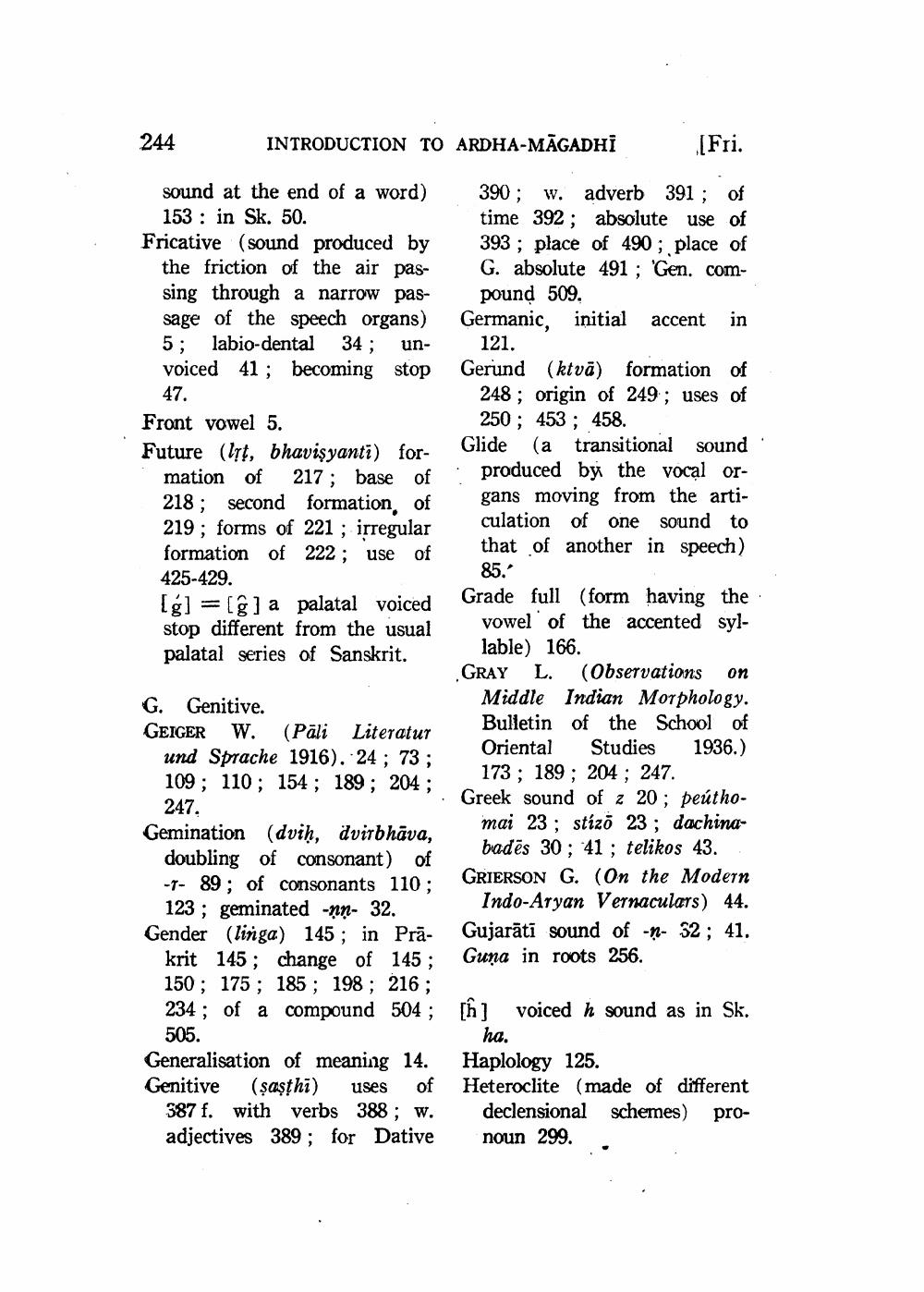________________
244
INTRODUCTION TO ARDHA-MĀGADHI
[Fri.
sound at the end of a word) 390 ; w. adverb 391 ; of 153 : in Sk. 50.
time 392; absolute use of Fricative (sound produced by 393 ; place of 490; place of
the friction of the air pas- G. absolute 491 ; Gen. comsing through a narrow pas- pound 509. sage of the speech organs) Germanic, initial accent in 5; labio-dental 34; un- 121. voiced 41 ; becoming stop Gerund (ktvā) formation of 47.
248 ; origin of 249 ; uses of Front vowel 5.
250 ; 453 ; 458. Future (līt, bhavisyanti) for
Glide (a transitional sound mation of 217 : base of produced by the vocal or218; second formation of
gans moving from the arti219; forms of 221 ; irregular
culation of one sound to formation of 222; use of
that of another in speech) 425-429.
85. [g] =[g] a palatal voiced
Grade full (form having the stop different from the usual
vowel of the accented sylpalatal series of Sanskrit.
lable) 166.
GRAY L. (Observations on G. Genitive.
Middle Indian Morphology. GEIGER W. (Pāli Literatur
Bulletin of the School of und Sprache 1916). 24 ; 73;
Oriental Studies 1936.) 109; 110; 154 ; 189; 204 ;
173 ; 189; 204 ; 247.
'. Greek sound of 2 20; peúthoGemination (dvih, dvirbhāva,
mai 23 ; stizo 23; dachina
badēs 30; 41; telikos 43. doubling of consonant) of -7- 89; of consonants 110;
GRIERSON G. (On the Modern 123; geminated -nn- 32.
Indo-Aryan Vernaculars) 44. Gender (linga) 145 ; in Pra- Gujarāti sound of -n- 32; 41. krit 145 ; change of 145: Guna in roots 256. 150; 175 ; 185 ; 198; 216 ; 234 ; of a compound 504 ; [h] voiced h sound as in Sk.
505. Generalisation of meaning 14. Haplology 125. Genitive (şaşthi) uses of Heteroclite (made of different
387 f. with verbs 388 ; w. declensional schemes) proadjectives 389; for Dative noun 299.
247.
ha.




